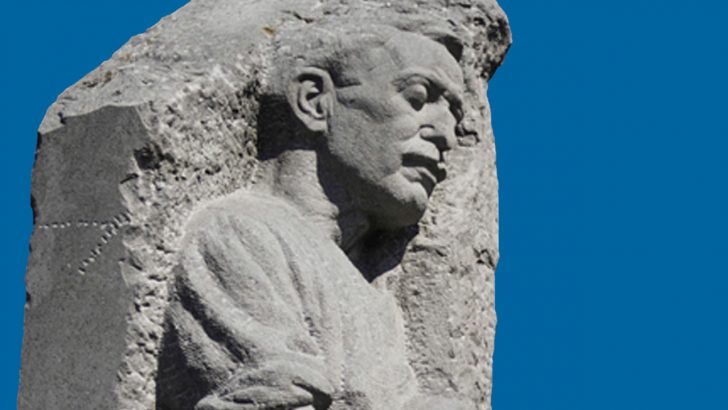The Irish Spirit – Issue No. 6
Emma Tobin
When trying to understand addiction, it is important to remember what every human is addicted to. We are all addicted to breathing, for example. It’s easy to test, just start holding your breath and soon enough your body will want some air. A little longer, and your body will need some air. A little longer (going red-faced now) and your body will demand some air. Believe me, you would break all the fingernails on both hands if that was what it took to take a breath when you really needed it.
Breathing doesn’t seem like an addiction. We need to do it to live. That’s a fact. It’s important to remember, however, that the flesh and bone our souls are stuffed into doesn’t know any facts. Perhaps you could say our brain knows them, but the brain is made of tissue, and it is absolutely capable of knowing the wrong facts.
So, yes, we need to breathe. An astronaut could tell you that. Anyone who swims could tell you that. A ten minute-old child could tell you that. You are addicted to breathing because when you don’t your body starts to feel like it’s dying. When trying to understand addiction it’s important to remember that you know more about it than you think.
It’s also important to remember that you know nothing, if you haven’t experienced it, about substance addiction. Breathing is usually good for you. Everyone from your doctor to your mother approves of it. Oxygen is free and exists in copious quantities almost everywhere humans have chosen to live. The question of what happens when you become addicted to something that isn’t good for you is one that, for most of us, doesn’t require looking far.
Alcohol has been used for centuries by multiple human civilisations, for medicinal, ritualistic, and of course social purposes. The history of alcoholism, most likely, stretches back exactly as far as the invention of alcohol. It is only in recent centuries that we have reached a greater understanding of substance addiction and those it targets.
Matt Talbot was born on the 2nd of May 1856, the second eldest of twelve children in a poor Dublin family. His father was a heavy drinker who spent most of his income at the local pub, and soon enough Matt and most of his brothers would follow suit. Matt received only one year of schooling before he was forced to find a job, which he did, in a bottling company. This provided ample grounds for experimentation, and by his mid-teens he was drinking regularly.
Later in life Matt recalled that throughout his late-teens and most of his twenties, his sole purpose in life was to fund his constant, heavy drinking. He spent everything he earned on alcohol, and would regularly scrounge, beg, and pawn anything he could sell in order to fund his habit until pay day. It was not terribly unusual for working men to drink copiously, but Matt’s obsession scythed through any other worldly interest. Most weeks, he would bring just a shilling home to his mother.
Matt became an autodidact, teaching himself to read and dedicating much of his time to reading and rereading religious texts.”
Most people nowadays are capable of understanding that for a child in the most poverty-stricken circumstances, with little or no education and a family history awash in alcoholism, living in a social and cultural circle in which drinking was what grown men did, this was a very difficult fate to avoid. It might have been the story of Matt Talbot; it was the story of many others. However, when Matt was in his late twenties, he realised the ruinous effect that alcohol was having on his life. There were few options for poor, unskilled workers to seek medical help, so Matt turned to the Church in the hope that he could seek God’s help in overcoming this terrible disease.
He took a pledge not to drink for three months. These first few ‘dry’ months were excruciating, but when the temptation to drink struck, Matt turned instead to prayer. After the three months were over, he extended his pledge, and did not drink alcohol for the remainder of his life. Matt adopted an ascetic lifestyle of constant prayer with few physical comforts, based off accounts of monastic life. The churches of Dublin became his refuge. When, in the initial weeks and months of his recovery, the urge to have a drink almost overwhelmed him, Matt would retreat to a nearby place of worship and pray for strength. In later years, Matt’s dedication to prayer continued unabated and his days were spent either working, praying, or attending Mass.
The rest of his life was spent in devoted prayer. Matt became an autodidact, teaching himself to read and dedicating much of his time to reading and rereading religious texts. He wore several pages in his Bible almost transparent. He was regarded as one of the hardest and fastest workers in Dublin and gave charity and support to everyone around him. He died suddenly in Granby Lane on Trinity Sunday, 7th of June 1925, while on his way to Mass. He could not be identified at the scene, but when his body was being prepared for burial, it was found to be wrapped with several chains, a symbol of his devotion to Mary. He was buried in a pauper’s grave in Glasnevin cemetery.
Soon after his death, Matt’s reputation as a saintly man and a protector of those suffering from addiction was established. He became the Venerable Matt Talbot in 1973. Matt found his champions in his faith, and his legacy is one of hope that addiction can be overcome. It is also a reminder that addiction is difficult to overcome alone.



